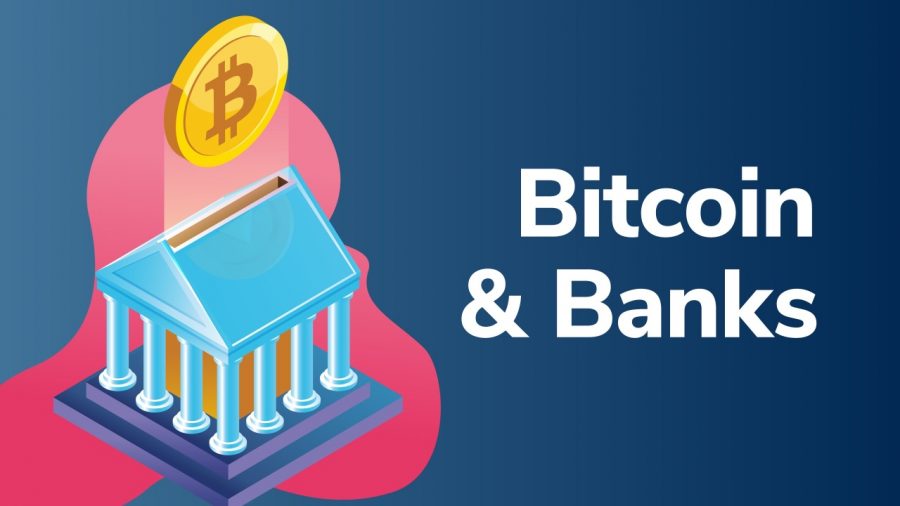If you’re looking for ways to manage both your traditional and alternative currencies. While some US banks allow you to buy Bitcoins with your bank account, most US banks do not allow customers to buy or exchange any type of cryptocurrency. However, with the recent passage of new digital currency legislation by the federal government, this could all change.
Banks are recognizing the popularity of cryptocurrency and expanding their services in response. The blockchain technology behind cryptocurrency has transformed how we think about our finances, integrating decentralized systems and low fees while prioritizing privacy.
Because of the growing demand for cryptocurrency, banks have had to put their fears aside and focus on their customers.
Which banks accept bitcoin?
Although we don’t know what the future holds for banks and cryptocurrencies, it appears to be bright so far. For the time being, however, most US banks do not provide cryptocurrency services, and those that do typically only allow you to use bank funds to purchase cryptocurrencies rather than keep them in digital wallets.
So, which banks are currently Bitcoin-friendly? Take a look at our list below:
1. USAA
USAA is a financial services company that offers bank accounts, insurance policies, and investment options. The first major US bank to invest in a cryptocurrency exchange was USAA. Viewing your Coinbase transactions from your USAA account is simple, whether you’re logged in online or via the USAA mobile app. USAA members can also buy Bitcoins using their debit cards, bank transfers, and bank wire transfers. This bank is an excellent choice for those seeking not only a traditional bank that accepts Bitcoin but also other financial services.
2. Simple
Simple Bank is a direct bank, which means it operates entirely online but is still FDIC-insured. To buy and sell Bitcoins, Simple Bank supports a number of cryptocurrency exchanges. Simple members can purchase Bitcoins using either their bank accounts or debit cards.
Simple’s main selling point, aside from cryptocurrency acceptance, is the seamless integration of banking features with online budgeting tools. If you want a crypto-friendly bank that allows you to track your bank expenses as well as plan your budget, Simple is the way to go.
3. Ally
Ally Bank is another virtual-only bank, but they provide 24/7 customer service to ensure that you always have access to the financial assistance you require.
They also don’t charge any bank maintenance fees, and you won’t find many other banks that offer a 1% annual percentage yield on your savings. You can buy cryptocurrency with an Ally Bank debit card, a bank transfer, or a bank wire.
To complete these transactions, Ally makes it simple to link your bank account to Coinbase. If you want a bank that supports cryptocurrencies while also paying a decent interest rate, Ally is probably the bank for you.
4. Wells Fargo & Company
Banks like Wells Fargo, aware of how cryptocurrency can change people’s economic fortunes, are ready to capitalize on this earning potential and take a cut of the profits. Wells Fargo expanded its cryptocurrency offerings in 2021, but only to high-net-worth customers.
Wells Fargo is attempting to protect themselves while also pleasing their largest accounts by offering crypto funds to affluent customers rather than all customers. While it may appear unfair, this move suggests that other banks may choose to focus on larger crypto funds that will benefit their business.
Furthermore, these calculated investments and expansions may help to protect banks in the event that Bitcoin crashes. Rather than undermining its entire financial infrastructure and irreparably harming its customers’ finances, wealthy customers will be able to recover faster and assist Wells Fargo in doing so.
5. The Bank of America
Bank of America is one of the country’s largest financial institutions. Customers can invest in cryptocurrency through Merrill Edge, a subsidiary of Bank of America. Merrill Edge, which was founded in 2010, is an online trading platform that allows customers to invest in exchange-traded funds, or ETFs. These ETFs use decentralized blockchain technology to provide exposure to the cryptocurrency market.
6. Chase
JPMorgan Chase, headquartered in New York City, is a multinational investment bank that is paving the way for cryptocurrency in banking. Chase provides a variety of banking services for both businesses and individuals, including checking and savings accounts, credit cards, home loans, and much more.
Customers can now use the Coinbase exchange to buy and sell cryptocurrencies such as Bitcoin. Furthermore, in 2021, Chase used blockchain technology to create JPM Coin, a currency designed to facilitate international payments. JPMorgan also launched a Bitcoin fund for wealth management clients, further expanding their cryptocurrency offerings. These last two options, like Wells Fargo, are not available to all customers.
For Bitcoin-Friendly ATMs, look to Pelicoin
Knowing which Bitcoin banks are accommodating can help you make informed decisions about how to manage your traditional and alternative currencies. And, while some US banks provide some virtual cryptocurrency services, no US bank allows you to buy and sell Bitcoins through an ATM.
However, that is precisely what Pelicoin ATMs are designed to do, and with the utmost safety and efficiency for each transaction.
Is it possible to transfer a bitcoin wallet to a bank? The person transferring their Bitcoin ownership may receive a transfer directly to their bank account or via wire transfer, depending on the payment option. This digital money can be loaded onto a debit card and then withdrawn at an ATM.
Also Read: 9 Digital Marketing Strategies For Crypto And Blockchain Businesses









